UK house prices increased by 7.8% in the year to June 2022, down from 12.8% in May 2022.
On a non-seasonally adjusted basis, average house prices in the UK increased by 1.0% between May and June 2022, down from an increase of 5.7% during the same period a year earlier (May and June 2021).
The UK Property Transactions Statistics showed that in June 2022, on a seasonally adjusted basis, the estimated number of transactions of residential properties with a value of £40,000 or greater was 95,420.
This is 54.3% lower than a year ago (June 2021). Between May and June 2022, UK transactions decreased by 7.9% on a seasonally adjusted basis.
House price growth was strongest in the East of England where prices increased by 9.7% in the year to June 2022.
The lowest annual growth was in North East, where prices increased by 3.6% in the year to June 2022.
The Royal Institution of Chartered Surveyors’ (RICS’) June 2022 UK Residential Market Survey reported that results point to a softening in demand at the headline level.
The Bank of England’s Agents summary of business conditions 2022 Q2 reported a modest increase in the availability of properties for sale across the UK and house price inflation starting to moderate in some areas.
The Bank of England’s Money and Credit June 2022 release reported that mortgage approvals for house purchases, an indicator of future borrowing, decreased to 63,700 in June 2022, from 65,700 in May 2022.
This remains below the pre-pandemic 12-month average up to February 2020 of 66,700.
England
In England the June data shows, on average, house prices have risen by 0.9% since May 2022. The annual price rise of 7.3% takes the average property value to £304,867.
The regional data for England indicates that:
- the East of England experienced the greatest increase in its average property value over the last 12 months with a movement of 9.7%
- the North East saw the lowest annual price growth with an increase of 3.6%
- Yorkshire and the Humber saw the most significant monthly price fall with a movement of -0.4% since May 2022
- the North West experienced the greatest monthly growth with an increase of 2.1% since May 2022
Price change by region for England
| Region | Average price June 2022 | Annual change % since June 2021 | Monthly change % since May 2022 |
|---|---|---|---|
| East Midlands | £245,911 | 9.3 | 1.7 |
| East of England | £354,481 | 9.7 | 0.5 |
| London | £537,920 | 6.3 | 1.9 |
| North East | £157,924 | 3.6 | 1.7 |
| North West | £212,347 | 6.2 | 2.1 |
| South East | £390,513 | 8.9 | 0.8 |
| South West | £322,329 | 8 | 0.5 |
| West Midlands | £246,114 | 6.6 | 0 |
| Yorkshire and the Humber | £203,973 | 4.2 | -0.4 |
Repossession sales by volume for England
The lowest number of repossession sales in April 2022 was in the East of England region.
The highest number of repossession sales in April 2022 was in the North East.
| Repossession sales | April 2022 |
|---|---|
| East Midlands | 4 |
| East of England | 0 |
| London | 4 |
| North East | 9 |
| North West | 6 |
| South East | 6 |
| South West | 4 |
| West Midlands | 2 |
| Yorkshire and the Humber | 2 |
| England | 37 |
Average price by property type for England
| Property type | June 2022 | June 2021 | Difference % |
|---|---|---|---|
| Detached | £473,654 | £436,069 | 8.6 |
| Semi-detached | £292,222 | £268,955 | 8.7 |
| Terraced | £250,778 | £235,828 | 6.3 |
| Flat/maisonette | £252,431 | £241,889 | 4.4 |
| All | £304,867 | £284,252 | 7.3 |
Funding and buyer status for England
| Transaction type | Average price June 2022 | Annual price change % since June 2021 | Monthly price change % since May 2022 |
|---|---|---|---|
| Cash | £285,151 | 6.3 | 0.7 |
| Mortgage | £314,661 | 7.6 | 1 |
| First-time buyer | £254,110 | 7 | 1.3 |
| Former owner occupier | £348,575 | 7.6 | 0.6 |
Building status for England
| Building status | Average price June 2022 | Annual price change % since June 2021 | Monthly price change % since May 2022 |
|---|---|---|---|
| New build | £404,587 | 16.9 | -4 |
| Existing resold property | £291,692 | 11.3 | 1.1 |
London
London shows, on average, house prices have risen by 1.9% since May 2022.
An annual price rise of 6.3% takes the average property value to £537,920.
Average price by property type for London
| Property type | June 2022 | June 2021 | Difference % |
|---|---|---|---|
| Detached | £1,080,081 | £995,614 | 8.5 |
| Semi-detached | £694,334 | £639,787 | 8.5 |
| Terraced | £590,640 | £553,440 | 6.7 |
| Flat/maisonette | £447,046 | £425,811 | 5 |
| All | £537,920 | £505,998 | 6.3 |
Funding and buyer status for London
| Transaction type | Average price June 2022 | Annual price change % since June 2021 | Monthly price change % since May 2022 |
|---|---|---|---|
| Cash | £553,409 | 6.6 | 1.7 |
| Mortgage | £532,230 | 6.2 | 1.9 |
| First-time buyer | £464,767 | 5.8 | 2.1 |
| Former owner occupier | £617,589 | 7.1 | 1.6 |
Building status for London
| Building status | Average price June 2022 | Annual price change % since June 2022 | Monthly price change % since June 2021 |
|---|---|---|---|
| New build | £567,526 | 8.8 | -4.3 |
| Existing resold property | £522,226 | 6.9 | 0.9 |
Wales
Wales shows, on average, house prices have risen by 0.6% since May 2022.
An annual price rise of 8.6% takes the average property value to £213,091.
There were 2 repossession sale for Wales in April 2022.
Average price by property type for Wales
| Property type | June 2022 | June 2021 | Difference % |
|---|---|---|---|
| Detached | £322,562 | £295,188 | 9.3 |
| Semi-detached | £207,493 | £189,073 | 9.7 |
| Terraced | £167,929 | £155,111 | 8.3 |
| Flat/maisonette | £133,647 | £129,456 | 3.2 |
| All | £213,091 | £196,221 | 8.6 |
Funding and buyer status for Wales
| Transaction type | Average price June 2022 | Annual price change % since June 2021 | Monthly price change % since May 2022 |
|---|---|---|---|
| Cash | £205,858 | 8 | 0.6 |
| Mortgage | £217,278 | 8.9 | 0.6 |
| First-time buyer | £184,537 | 8.7 | 1.2 |
| Former owner occupier | £246,598 | 8.6 | 0.1 |
Building status for Wales
| Building status | Average price June 2022 | Annual price change % since June 2021 | Monthly price change % since May 2022 |
|---|---|---|---|
| New build | £309,122 | 21.7 | -3.8 |
| Existing resold property | £205,813 | 15.5 | 2.1 |
Tom Bill, head of UK residential research at Knight Frank comments:
“The distortions of the stamp duty holiday mean house price growth in June can largely be ignored.
The bigger picture is that prices are waiting for gravity to arrive this autumn.
Rising rates have driven demand as buyers attempt to move before mortgage offers expire but a more expensive lending environment will eventually see buyers’ budgets cut.
Meanwhile, the recovery in supply that began in late spring has been put on hold as more people take a summer holiday for the first time in three years.
As supply builds and demand softens, we expect price growth to end the year in single digits.”
Jeremy Leaf, north London estate agent and a former RICS residential chairman, says:
“This most comprehensive of all the market surveys, though reflecting activity from a few months ago, confirms what we have been seeing on the ground – price growth is softening but not collapsing as buyers and sellers negotiate hard to keep transactions alive.
Rising inflation may be behind the fastest fall in real incomes on record but also boosting demand to save on running costs and better value for money.
The cost-of-living crisis is clearly weighing more heavily on those on lower incomes so aspiring first-time buyers are finding it more difficult, especially as rents remain at, or near, record levels.”
Tomer Aboody, director of property lender MT Finance, says:
“While property prices increasing year-on-year due to demand and the cheap borrowing environment isn’t surprising, what is remarkable is the sales volume difference between April 2022 and April 2021, which has nearly halved.
The lack of stock over the past year has fuelled the market, pushing prices to record levels.
As interest rates continue to rise along with inflation, buyers’ confidence is dwindling and therefore values are likely to plateau.
While interest rates increase, some buyers will take the view that the cost of borrowing remains at a much lower level than at other times, and the fear of further increases will push buyers to fix rates, allowing them to manage their costs while inflation is soaring.”
Sarah Tonkinson, Managing Director (Institutional Private Rented Sector and Build to Rent) Foxtons, commenting in ONS Rental Price data, said:
“Rent is making headlines in the Capital.
Put aside renewals, which are reflected in the ONS data, and London’s average rental price for new rents was £541 per week in July, hot on the heels of June’s £549 per week, which broke the record as highest monthly rental price in years.
This is due to high demand and low supply – aggregators have had 40% fewer new listings year to date.
As low stock and high demand are likely to continue for some time, we do not see average rental prices declining significantly in the coming months.”
Jean Jameson, Chief Sales Officer at Foxtons, commenting on the ONS UK House Price data, said:
“Property prices are growing rapidly across the country, and we can see just how rapidly when we look at the Capital.
London has the lowest annual growth of any region, yet it has seen a huge increase in property price so far this year.
London’s property price increased 8.2% from July 2021 – that’s the biggest change in annual property price since July 2016.
Price growth was not felt equally across all boroughs, either. These last 12 months, property prices grew at a faster rate in Outer London than in Inner London, increasing 7.7% and 4.7% respectively.
We may even see housing prices plateau in some Inner London boroughs in the coming months.”
Mark Harris, chief executive of mortgage broker SPF Private Clients, says:
“As house prices continue to rise in most parts of the country, inflation soars to 10.1 per cent and with another 50 basis points rise in interest rates on the cards at the next Monetary Policy Committee meeting, there is growing concern around affordability and borrowing potential.
With money market rates continuing to rise, mortgage pricing is also edging up accordingly.
Borrowers need to move quickly to secure the best mortgage rates as they are often pulled at short notice.
Service levels also vary considerably between lenders so transactions can take longer than borrowers anticipate, particularly if their case is complex, so advice is more important than ever.”
Anna Clare Harper, director of real estate technology platform IMMO, says:
“This slowdown in price growth will be welcomed by those struggling with affordability constraints, since the average house price remains over 10 times average annual individual earnings
It also makes sense. House prices and house price growth figures both reflect and affect consumer and investor confidence.
House prices are the result of supply and demand.
Interest rate rises and talk of recession are cooling demand.
In recessionary times and when interest rates are higher, demand for buying properties tends to fall.
However, we all still need a roof over our heads. Demand for housing does not fall.
Demand shifts from buying to renting properties, which offers more flexibility.
Unfortunately, the shortage of supply of both properties for ownership and for rent continues.
For this reason, the slowdown in growth should not be taken as an indicator of a major crash to follow.
Professional investors are needed to plug the gap in quality, energy efficient, affordable homes for people and communities across the UK.”
Managing Director of Barrows and Forrester, James Forrester, commented:
“While both the monthly and annual rate of house price growth may have slowed quite considerably, the property market continues to march forward in fine form despite the fact that the rest of the economy is crumbling.
Of course, many will be quick to flag a reduced rate of growth as a sign that a market crash may be looming, but this amounts to little more than premature waffle and it’s important that we view a slower rate of growth in context with the period of unprecedented boom we’ve just experienced.
House prices are still up on a monthly and annual basis and given the instability of the wider backdrop right now, this is proof, if it was ever needed, that property is the safest investment you can make.”
Director of Benham and Reeves, Marc von Grundherr, commented:
“The UK economy is sailing head on into some very stormy seas at present, all while the captain remains on shore leave with no replacement yet to take the helm.
But despite this, the boat is yet to rock where the property market is concerned and the economic woes of rising inflation, increasing interest rates, and a cost of living crisis continue to bounce off the hull like mere pebbles rather than unforeseen ice bergs.
It’s inevitable that the property market was eventually going to slow from the high rate of knots it’s been moving at throughout the pandemic, but we’re yet to see any signs of it sinking and this is likely to remain the case.”
Managing Director of House Buyer Bureau, Chris Hodgkinson, commented:
“It very much looks like a matter of when, rather than if, with regard to the UK entering a period of recession and this will further fuel the economic angst that is currently gripping the nation.
While the property market has stood firm so far, we can expect a far greater level of uncertainty, coupled with hesitations on both the side of buyers and sellers, to cultivate a much less settled outlook over the coming months.
For those that do press on with a purchase, the ability to borrow will come at a greater cost and this will impact the price they are willing to pay, which in turn, will force sellers to lower their expectations when it comes to pricing their home for sale.”
Founding Director of Revolution Brokers, Almas Uddin, commented:
“It’s a very real possibility that interest rates will rise to between three and four per cent in an attempt to curb the 40 year high in inflation we’re currently seeing.
Although this will still be a historically low rate of interest, it will no doubt startle a generation of homebuyers who have known nothing other than a sub one per cent base rate until recently.
The result of which is likely to be a reduction in buyer demand and a more modest approach to borrowing, with these factors causing the previously high rates of house price growth seen over the last few years to plateau further.”


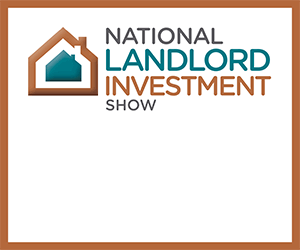


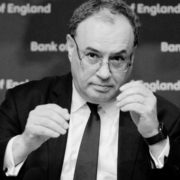


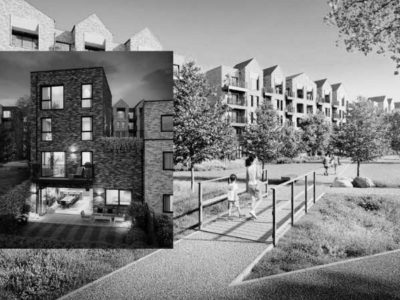


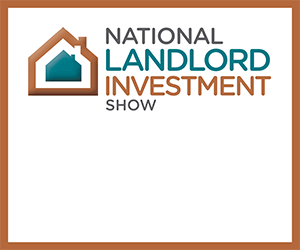



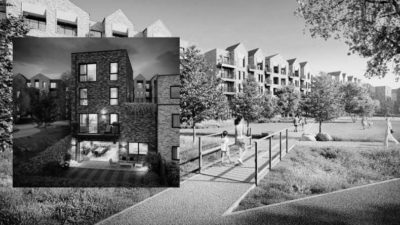

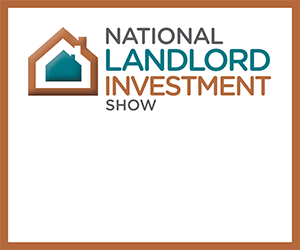
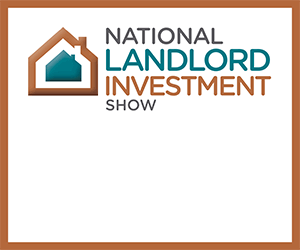

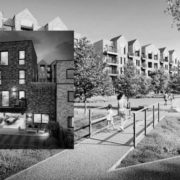


Comments